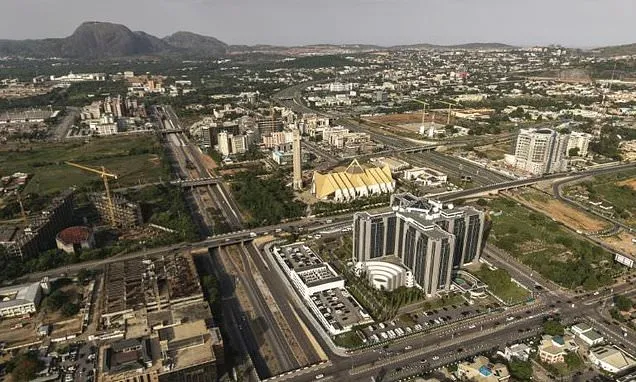As President Bola Tinubu praised his country's quarter century of democratic rule Thursday, many of the streets around the Nigerian capital carried a different, perhaps less-inspiring message.
To name a few: Sani Abacha Way takes commuters into downtown Abuja. Ibrahim Babangida Way meanwhile cuts through upscale Maitama. Murtala Muhammed Expressway passes next to the presidency and the National Assembly, where Tinubu delivered his Democracy Day speech.
All three are named after the heads of military juntas.
As other countries in west Africa have gone on a renaming spree -- mostly throwing out roads named for colonial figures -- Nigeria's strongmen have survived this final, symbolic purge.
All eight of Nigeria's military leaders have at least one street named after them in the capital -- a fact that's often met with a shrug, even as Thursday's holiday celebrates the transition to civilian rule in 1999 after decades of coups and military rule.
"Some leaders, because of their stature, a road can be named after them," said Ibrahim Hassan, 45, an employee at a corner store. "It's not about whether you've done the best for Nigeria."
A woman ringing up her groceries, who gave her name only as Adekemi, chimed in with an indifferent laugh: "Right now I'm focusing on how to afford this."
'House the military built'
Abuja was made the capital of Nigeria while the country was under military rule
Abuja -- a planned city that became Nigeria's capital in 1991 under Babangida -- "is the house that the military built, so naturally they paid homage to themselves" said Ikemesit Effiong, a partner at SBM Intelligence, a Lagos-based consultancy.
While data from pollster Afrobarometer has shown consistent public support for democracy in Nigeria, "the military is still a formidable, well-regarded institution, seen by many as comparatively disciplined and well run" after 26 years of often chaotic civilian rule.
Former military chiefs have also entered civilian politics, rehabilitating their image -- including Olusegun Obasanjo and Muhammadu Buhari, both elected president in the democratic era.
In the United States and Europe, activists in recent years clamoured to have streets renamed to address colonial or racist legacies -- though those moves weren't always without pushback.
In west Africa, including in Senegal and Ivory Côte d'Ivoire, governments have ditched boulevards named after French leaders and renamed them after their own countrymen.
"We have not fully grasped what democracy is about," lamented Edwin Ajibola, 42, who as an Uber driver makes his living plying roads named after strongmen.
Many Nigerians don't think twice about streets in Abuja being named after military rulers.
Tinubu too, while praising in his speech "how far we had come as a nation", acknowledged that "we still have so much, and a lot, for that to go."
Earlier this week, he found himself directly facing his predecessors' infrastructural legacy when the minister of the Federal Capital Territory renamed Abuja's International Conference Centre after the president.
Amid the political squabbling in the aftermath, one former lawmaker suggested the move would unfairly obscure the head of state who oversaw its building: junta head Babangida.
